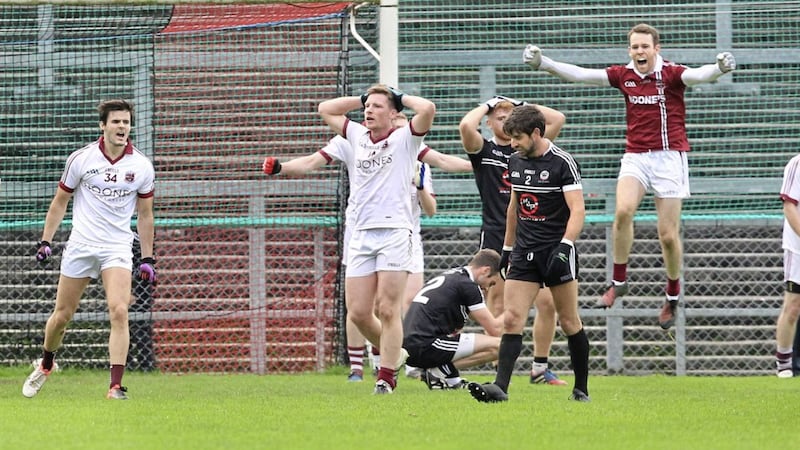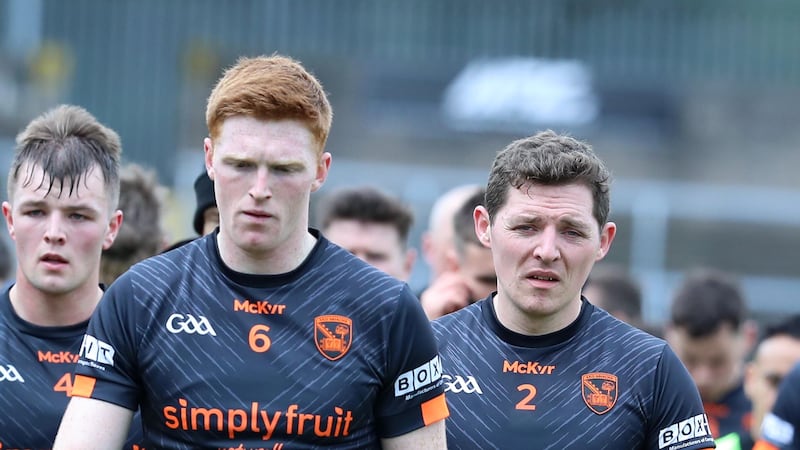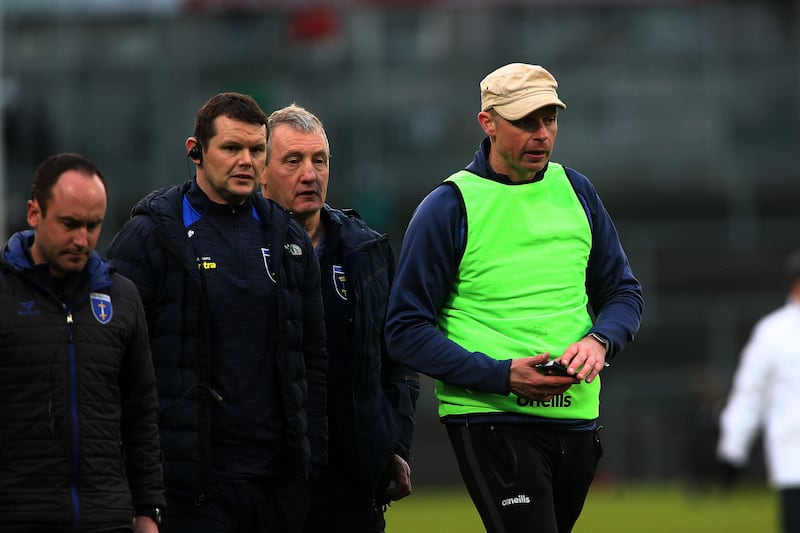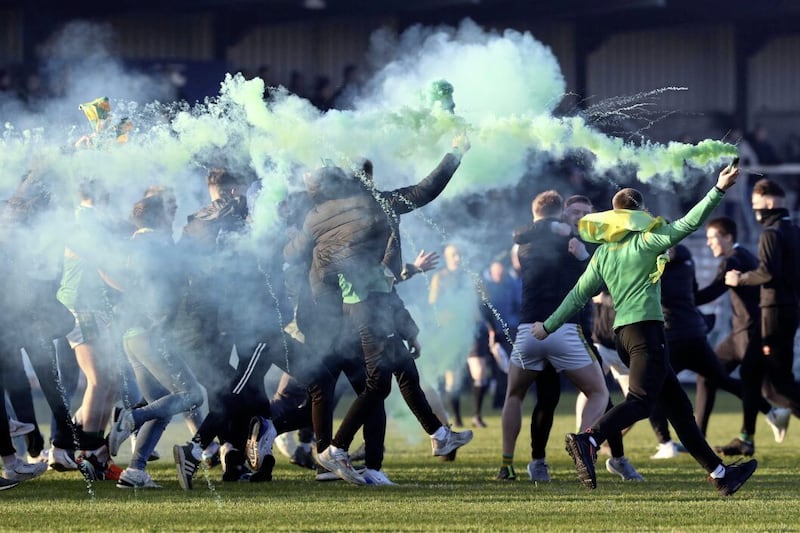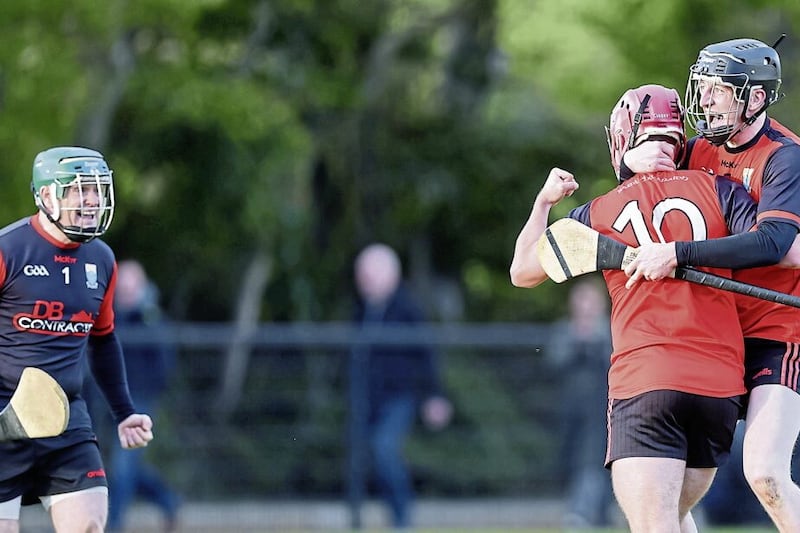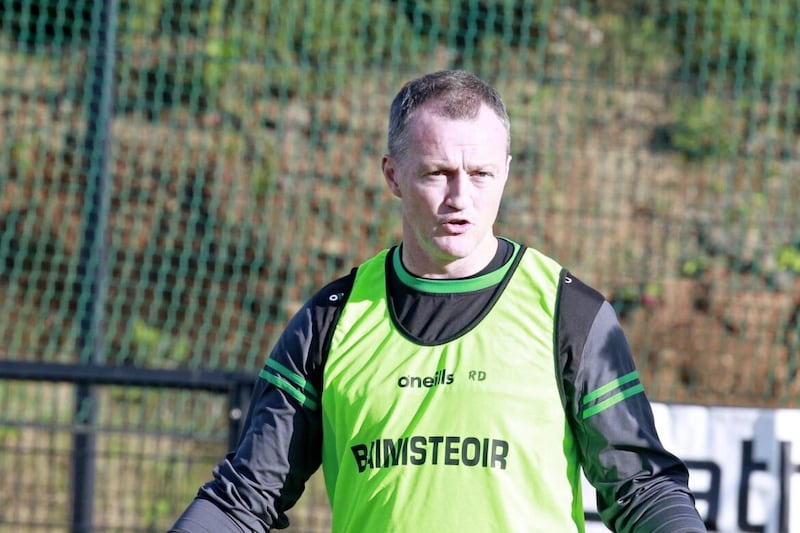THE Ulster Club (football) is my favourite GAA competition. You're not on the road too early, you're not home too late, and you often see competitive matches of a good standard.
It's not the same old same old either; we might have thought Crossmaglen's dominance would never end but this is now the second consecutive season that the once mighty Rangers won't even be participating in provincial combat, never mind bringing the Seamus McFerran Cup back to St Oliver Plunkett Park, as appeared usual for so long.
Instead, Armagh Harps will get their first crack at the Ulster Club since 1991 after dethroning last year's winners Maghery in the Orchard county decider. Similarly, Lamh Dhearg are Antrim's representatives having last appeared a quarter of a century ago.
Kilcar carry the Donegal colours after a 24-year wait.
It's not all newbies, though. Champions Slaughtneil came through a fascinating preliminary clash round in their fourth consecutive provincial campaign, ousting Down champions Kilcoo, who were embarking on their sixth attempt in a row to win Ulster.
Scotstown completed a hat-trick of Monaghan titles on Sunday, a feat Derrygonnelly achieved in Fermanagh two weeks earlier.
Omagh are back as Tyrone kingpins after a three-year gap; likewise for Cavan Gaels in the Breffni county.
The mix is intriguing, the variety excellent, blending seasoned campaigners with first-timers, with have-another-go wannabe-heroes, as so often.
The clubs change (or some of them do), but the competition remains regularly intriguing and interesting.
Yet it'll have to change too.
No club has a right to make progress, but it just doesn't seem right that Kilcoo, last year's beaten finalists, are gone already.
Arguably it would have been even worse had Slaughtneil been beaten on Sunday, given that the Derry champions have long provided the strongest alternative to Crossmaglen.
Exit for the Emmet's would have meant the champs being knocked out before 'The Irish News' Ulster Club supplement had even hit the streets.
That fate befell Scotstown last year, ironically knocked out in the preliminary round by Kilcoo, having taken Crossmaglen to extra time in an enthralling 2015 finale.
The solution? Simple – seeding.
As this column has advocated before, a system similar to that which has applied in recent years in the Leinster Football and Hurling Championships – the inter-county versions – makes sense.
The sides that consistently do well should be rewarded. The strugglers and stragglers should have to work harder to reach a certain stage.
As regards the Ulster club, the four strongest county champions should be kept apart in the quarter-final draw.
Based on recent competitions, the four seeds should be the champions of Derry, Armagh , Down, and Tyrone.
Antrim might argue about that, given that St Gall's have won twice since the last Tyrone triumph, and also reached two finals, whereas the aforementioned Omagh have been Tyrone's only finalist since Errigal Ciaran won way back in 2002.
Donegal clubs too have provided two of the past seven finalists – but it's eight years since Antrim had a club in the final and more recently Tyrone sides have been winning more Ulster club matches.
The last four last year were the Derry, Down, Tyrone, and Armagh champs; in 2015 it was Armagh, Monaghan, Down, and Tyrone; in 2014 it was Derry, Tyrone, Monaghan, and Donegal, so there's a clear case for the Tyrone champs being seeded.
I could be wrong; a count-back of results over the past five seasons, say, might shift the top four seeds.
There might need to be complicated system of co-efficients as with the Champions League in soccer, a combination in this case of club and county strengths rather than club and country rankings.
Clearly Crossmaglen have skewed the Armagh ranking. It's up to the Harps this year to prove their worth, as Maghery did to an extent last season by winning their quarter-final, albeit only against the Cavan champs, before being thrashed by Kilcoo.
What is beyond doubt and debate is that the preliminary round should be between the champions of Cavan and Fermanagh. That is obvious and irrefutable.
There has been no finalist from Fermanagh since 2002; none from Cavan since 1995.
No winners ever from either county.
Before anyone shouts 'that wouldn't be fair', what's really unfair is that a club from those two counties, perhaps clubs from both those counties, can get a quarter-final place while the likes of Kilcoo and Scotstown miss out – or Slaughtneil might have been absent from the last eight this year.
Besides, Cavan Gaels and Derrygonnelly should actually thank me for this article. It's classic old school motivation for them to prove this bar-steward (I pulled a good pint in my time) in the media wrong for writing them off.
I'd be happy to see either or both progress. They both have a decent chance, both with home advantage, both up against some of those aforementioned newcomers – Cavan Gaels will host Lamh Dhearg while Derrygonnelly take on Armagh Harps.
If you're good enough to reach the Ulster club semi-finals then prove it. Win a quarter-final against a decent team.
That's not asking too much; it's not asking a lot at all.
That preliminary round pairing could change in years to come, if positive results are achieved by clubs from those counties. Playing each other could be good preparation for a quarter-final too.
Before anyone starts bleating about elitism consider this: most sportspeople want to be the best that they can be, to improve their fitness, their skills, and their playing standards.
The better teams usually get the rewards. That's the way of the world and it shouldn't be discouraged.
It's not elitism, it's meritocracy.
I've felt this should be the way ever since first reporting on the Ulster Club for this paper almost two decades ago.
Surely I won't be alone in holding this view.
Given the imminent changes to the GAA calendar, with April set to be freed up completely for club fixtures, and September onwards similarly planned to be for club games only, the club scene is certain become even more serious than it already is.
Clubs are already regarded as more important in certain counties, and that may increase among those which may feel they have no chance of winning an All-Ireland, or reaching the 'Super Eight' stage.
Given the investment of time, effort, and – yes – money into clubs, they won't want to miss out on a fair chance of an Ulster club semi-final place, and perhaps further, simply due to the luck of the draw and an unchanged system.

